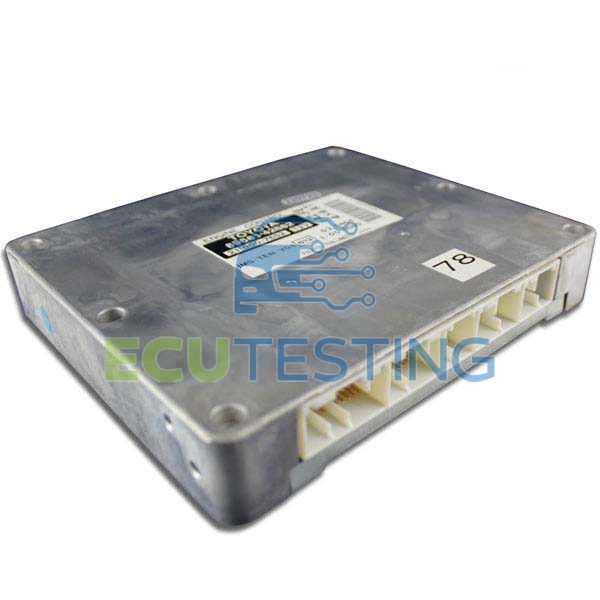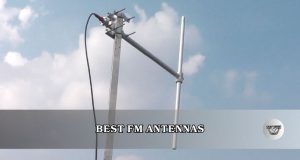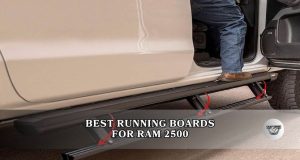Last Updated on November 25, 2025 by Aaron Blake
Have you ever wondered what controls your car’s engine and keeps it running smoothly? The answer lies in a small but powerful device called the Engine Control Unit, or ECU.
This little box is like your car’s brain, constantly making decisions to ensure everything works just right. Understanding what a car ECU is can help you take better care of your vehicle and even spot problems before they become serious.
Keep reading to discover how this vital part works and why it matters to you.

Credit: www.amazon.ca
Contents
Role Of The Car Ecu
The Engine Control Unit, or ECU, is the brain of a car’s engine. It controls many engine functions for smooth driving.
The ECU uses sensors to collect data and then adjusts engine settings to improve performance and efficiency.
Engine Performance Management
The ECU manages engine performance by controlling ignition timing and fuel injection. This helps the engine run smoothly.
It adjusts these settings based on engine speed and load to keep the car responsive and powerful.
- Controls spark timing for better power
- Regulates fuel injection for smooth running
- Monitors engine sensors constantly
Fuel Efficiency Control
The ECU helps save fuel by adjusting how much fuel the engine uses. It finds the best fuel-air mix for the engine.
This control reduces waste and helps the car use less gas during driving.
- Measures oxygen levels to adjust fuel
- Keeps fuel use low during light driving
- Improves mileage by smart fuel control
Emission Regulation
The ECU reduces harmful gases by controlling engine emissions. It works with sensors to keep emissions low.
This helps cars meet environmental rules and keeps air cleaner.
- Monitors exhaust gases with sensors
- Adjusts engine to lower pollution
- Supports catalytic converter function
Key Components Of An Ecu
The Engine Control Unit (ECU) is a small computer inside a car. It controls engine functions to keep the car running well.
The ECU has several important parts that work together. These parts help it collect data, process it, and control the engine.
Sensors And Actuators
Sensors in the ECU measure things like engine temperature and air flow. They send this data to the ECU.
Actuators get signals from the ECU to adjust parts of the engine. They control fuel injectors, spark plugs, and more.
- Oxygen sensors measure exhaust gases
- Throttle position sensors detect how much gas is used
- Fuel injectors spray fuel into the engine
- Ignition coils control spark timing
Microprocessor
The microprocessor is the brain of the ECU. It processes signals from sensors and makes decisions.
It uses fast calculations to control engine parts and keep the engine working smoothly.
- Reads data from sensors
- Runs control programs
- Sends commands to actuators
- Adapts to changing engine conditions
Memory And Software
Memory stores the ECU’s software and data. The software tells the microprocessor how to control the engine.
This software can include maps for fuel use, ignition timing, and other engine settings.
- Stores engine control programs
- Holds calibration data
- Records fault codes for repairs
- Allows updates to improve performance
How The Ecu Works
The Engine Control Unit (ECU) is the brain of a car’s engine. It helps the engine run smoothly and efficiently.
The ECU uses sensors to collect data and adjusts engine parts in real time. It also finds and reports problems.
Data Collection And Processing
The ECU gathers information from many sensors around the engine. These sensors measure things like air flow, temperature, and speed.
It processes this data to understand how the engine is working. The ECU uses this information to make decisions.
- Air intake sensor measures air entering the engine
- Oxygen sensor checks the air-fuel mix
- Throttle position sensor tracks the gas pedal
- Engine temperature sensor monitors heat levels
Real-time Adjustments
The ECU changes engine settings while the car runs. It does this many times every second.
These adjustments keep the engine running well and reduce harmful emissions. They also improve fuel efficiency.
- Adjusts fuel injection timing
- Controls ignition timing
- Regulates air and fuel mixture
- Manages idle speed
Error Detection And Diagnostics
The ECU can detect problems in the engine or sensors. It stores error codes to help mechanics find issues.
When a problem occurs, the ECU can turn on the check engine light. This alerts the driver to get the car checked.
- Monitors sensor signals for faults
- Records diagnostic trouble codes (DTCs)
- Helps with quick engine problem diagnosis
- Supports repairs and maintenance

Credit: www.ecutesting.com
Common Ecu Problems
The Engine Control Unit (ECU) controls many parts of a car’s engine. It helps the engine run smoothly and efficiently.
ECUs can have problems that affect how the car works. These issues can cause the engine to run poorly or not start at all.
Symptoms Of Ecu Failure
When the ECU fails, the car shows signs that something is wrong. These symptoms help identify ECU problems early.
Common symptoms include poor engine performance and warning lights on the dashboard.
- Engine misfires or stalls
- Poor fuel economy
- Check Engine Light stays on
- Car does not start or starts late
- Unusual engine behavior or rough idle
Troubleshooting Tips
Diagnosing ECU problems needs careful checks. Use simple steps to find if the ECU is at fault.
Start with scanning the car’s computer for error codes. This gives clues about ECU or sensor issues.
- Use an OBD-II scanner to read fault codes
- Check for loose or damaged wiring
- Inspect sensors connected to the ECU
- Test the battery and power supply to the ECU
- Reset the ECU and see if problems return
Repair And Replacement Options
Fixing ECU problems depends on the issue type. Some can be repaired, others need replacement.
Professional help is often required to repair or replace the ECU safely and correctly.
- Reprogramming or updating ECU software
- Repairing damaged wiring or connectors
- Replacing faulty sensors affecting ECU function
- Replacing the entire ECU unit if damaged
- Using certified parts for replacement

Credit: www.bosch-motorsport-shop.com.au
Frequently Asked Questions
What Is The Main Function Of A Car Ecu?
A car ECU controls engine performance by managing fuel, air, and ignition timing for better efficiency.
How Does The Ecu Affect Fuel Economy?
The ECU adjusts fuel injection precisely, helping the engine use fuel more efficiently and save gas.
Can A Faulty Ecu Cause Car Problems?
Yes, a bad ECU can cause engine misfires, poor fuel economy, or even prevent the car from starting.
How Does The Ecu Communicate With Other Car Systems?
The ECU sends and receives data through sensors and modules to control various engine functions smoothly.
Is It Possible To Reprogram Or Upgrade A Car Ecu?
Yes, many ECUs can be reprogrammed to improve performance or fix issues using specialized software.
Conclusion
The car ECU controls many engine functions. It helps the engine run smoothly and efficiently. Without the ECU, your car would not perform well. It reads sensors and adjusts fuel and air mix. This keeps the engine safe and saves fuel.
Understanding the ECU helps you care for your car better. It’s a key part of modern vehicles. Knowing its role can make car problems easier to fix. The ECU is small but very important. It keeps your car running the way it should.





